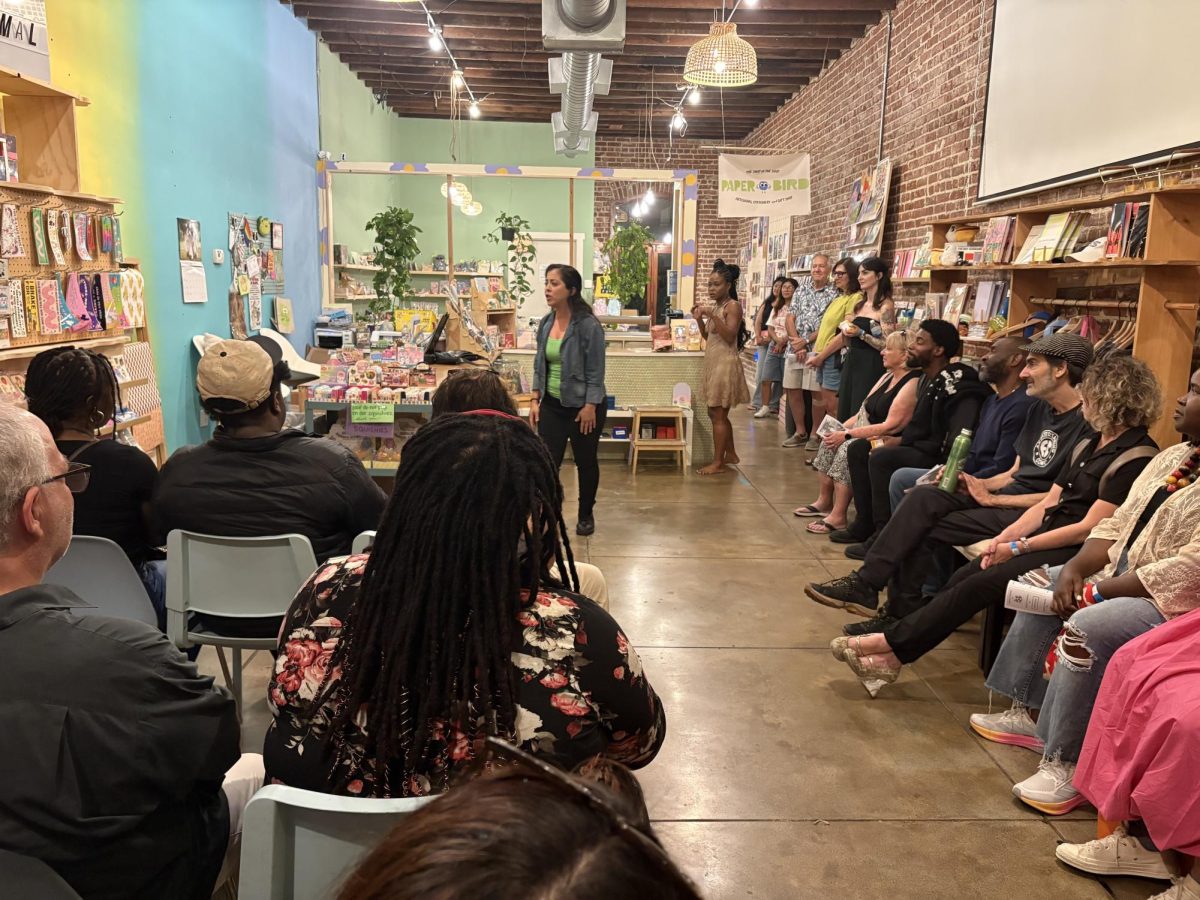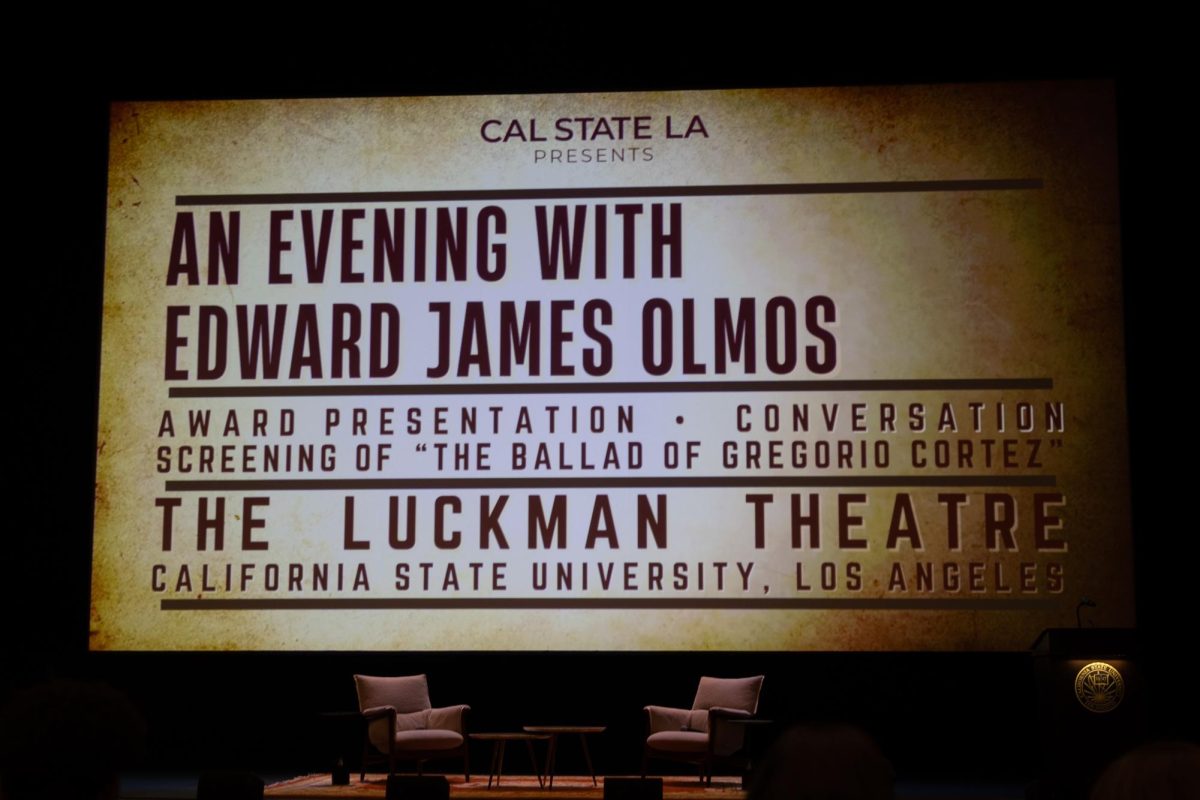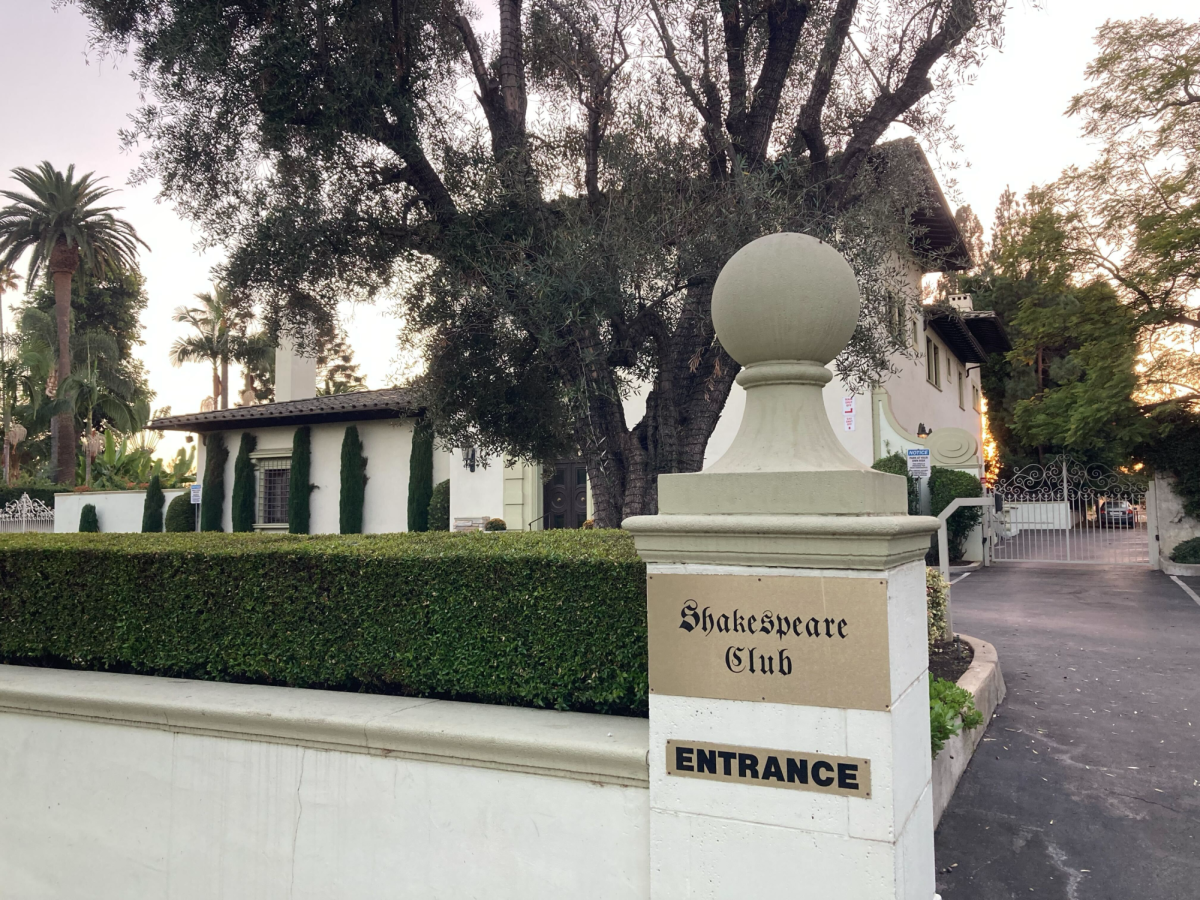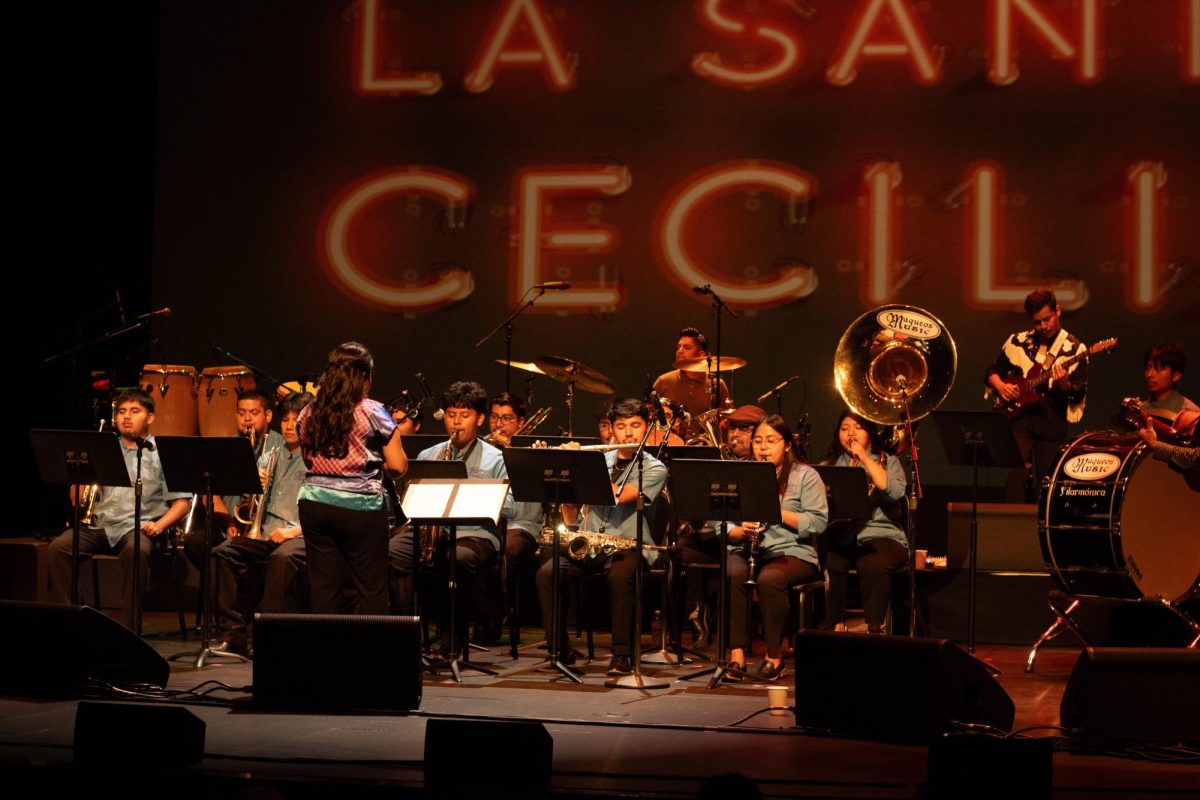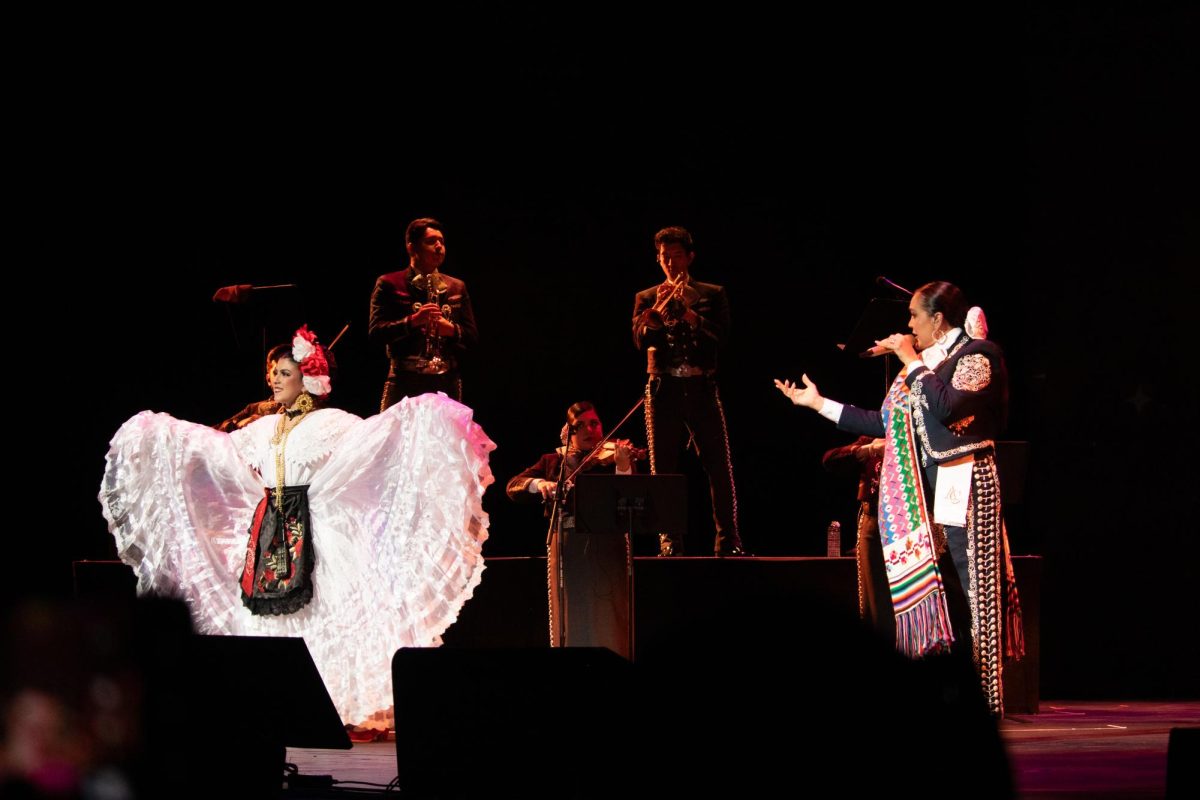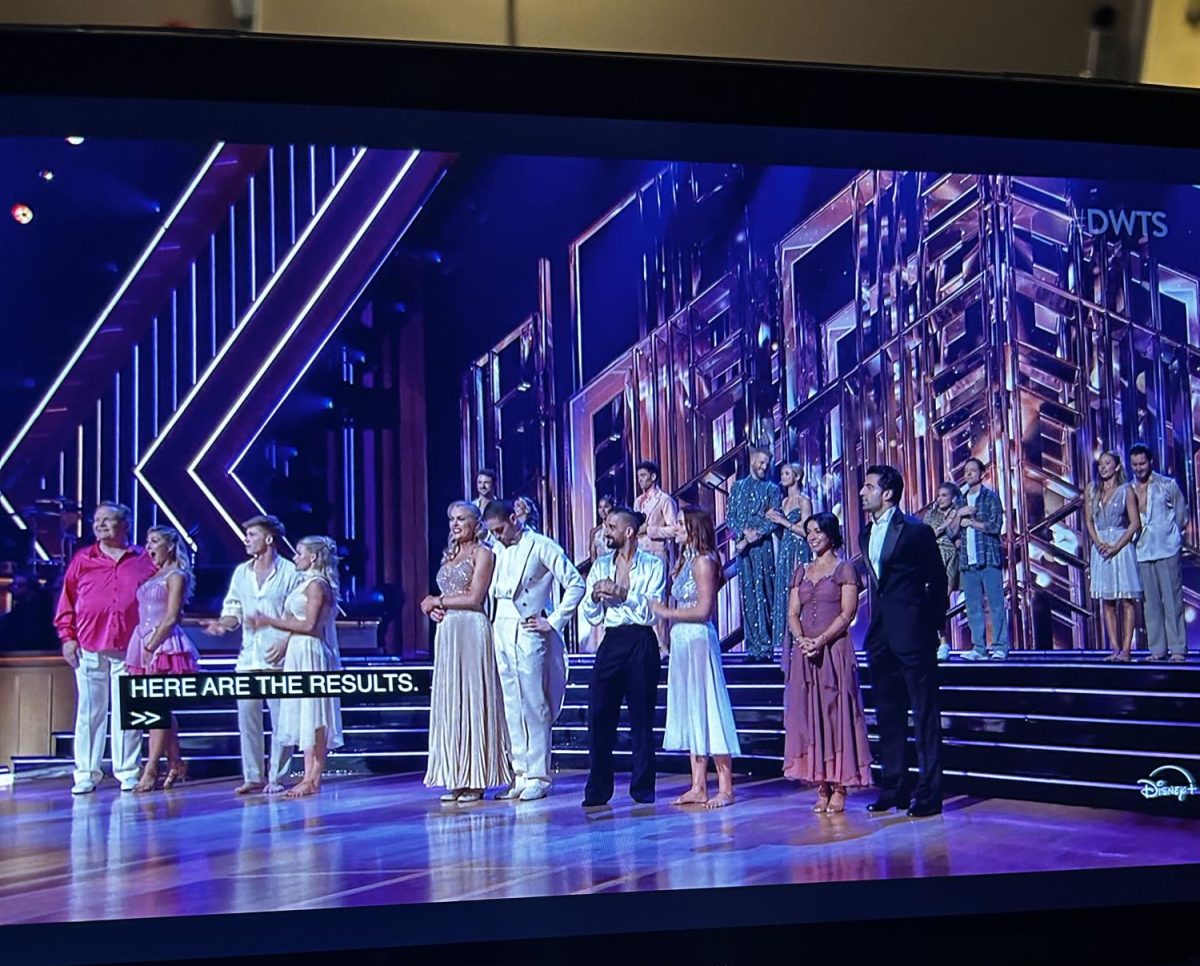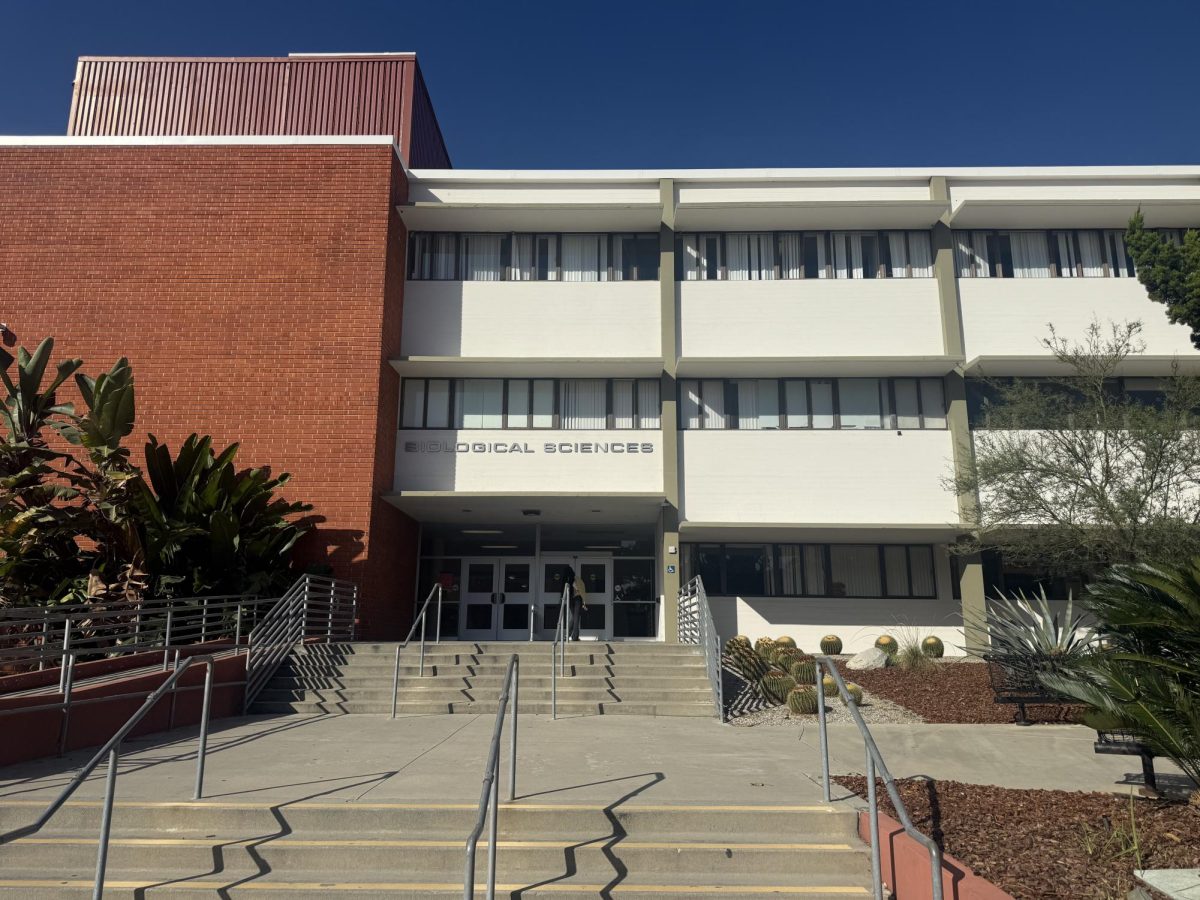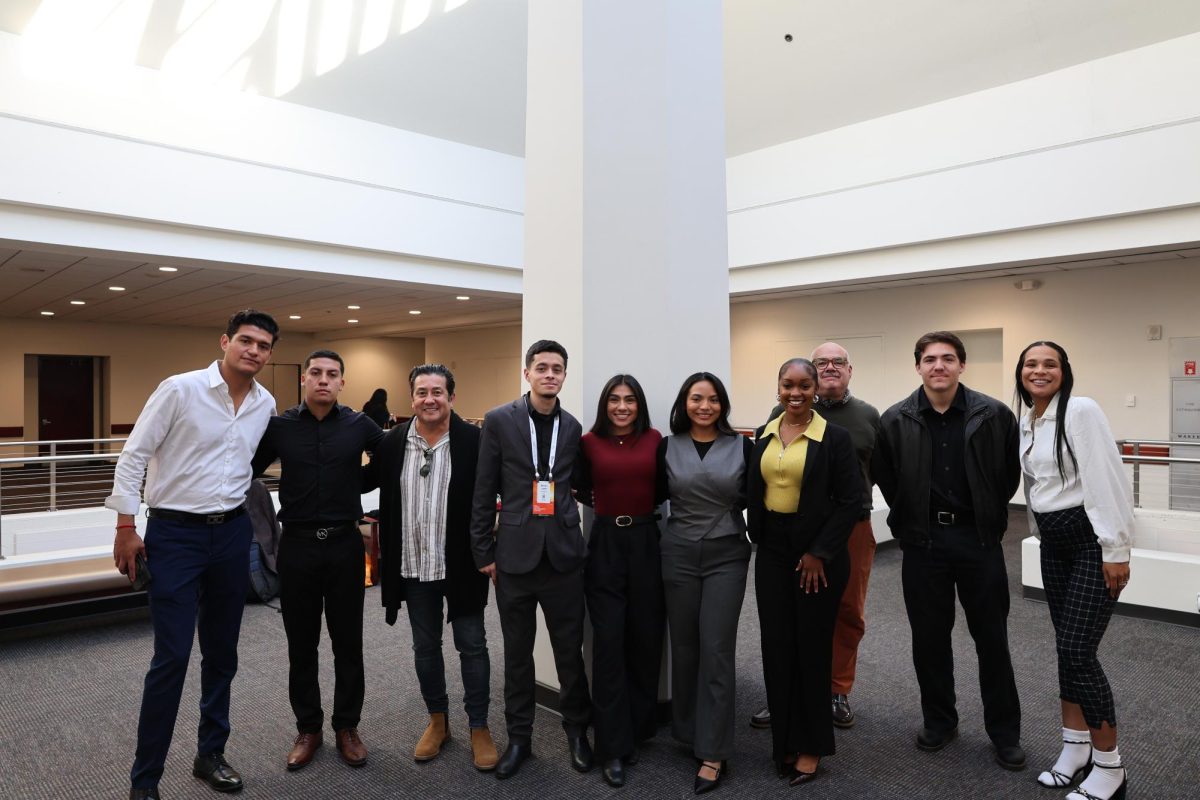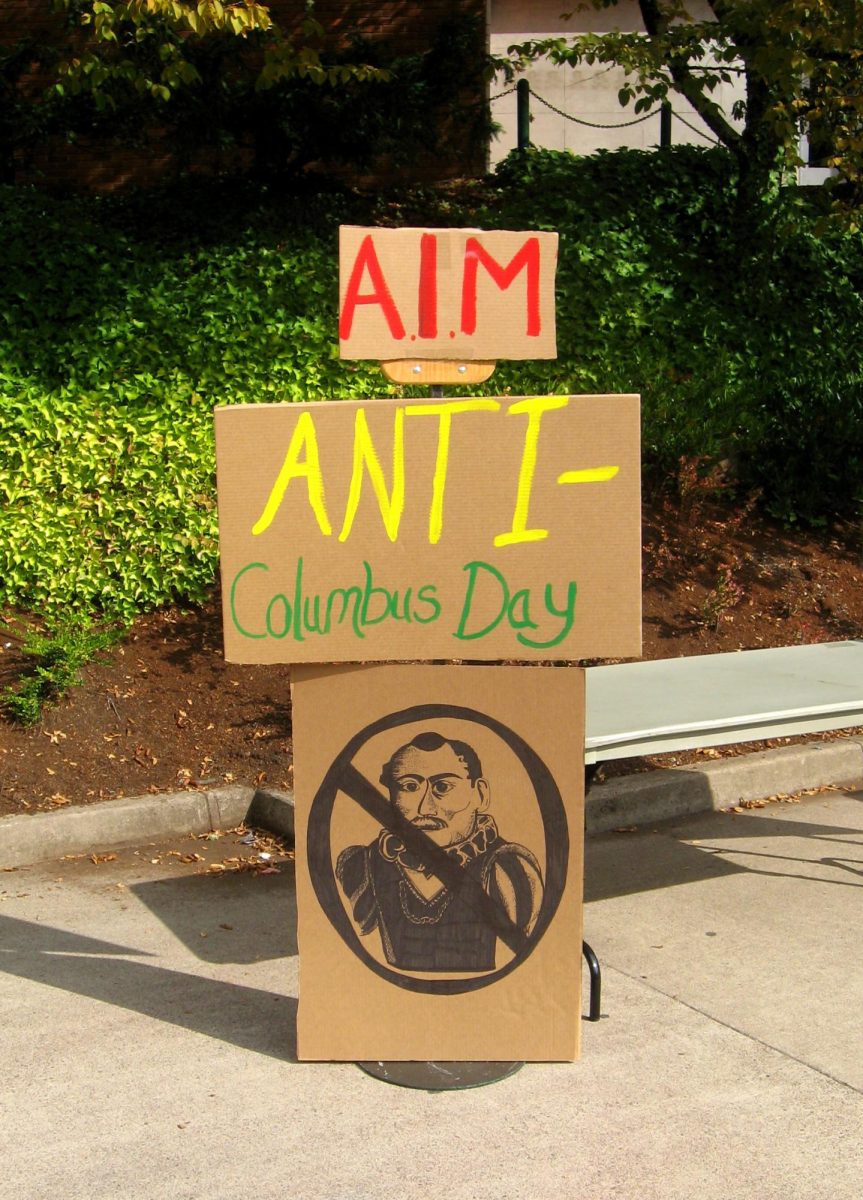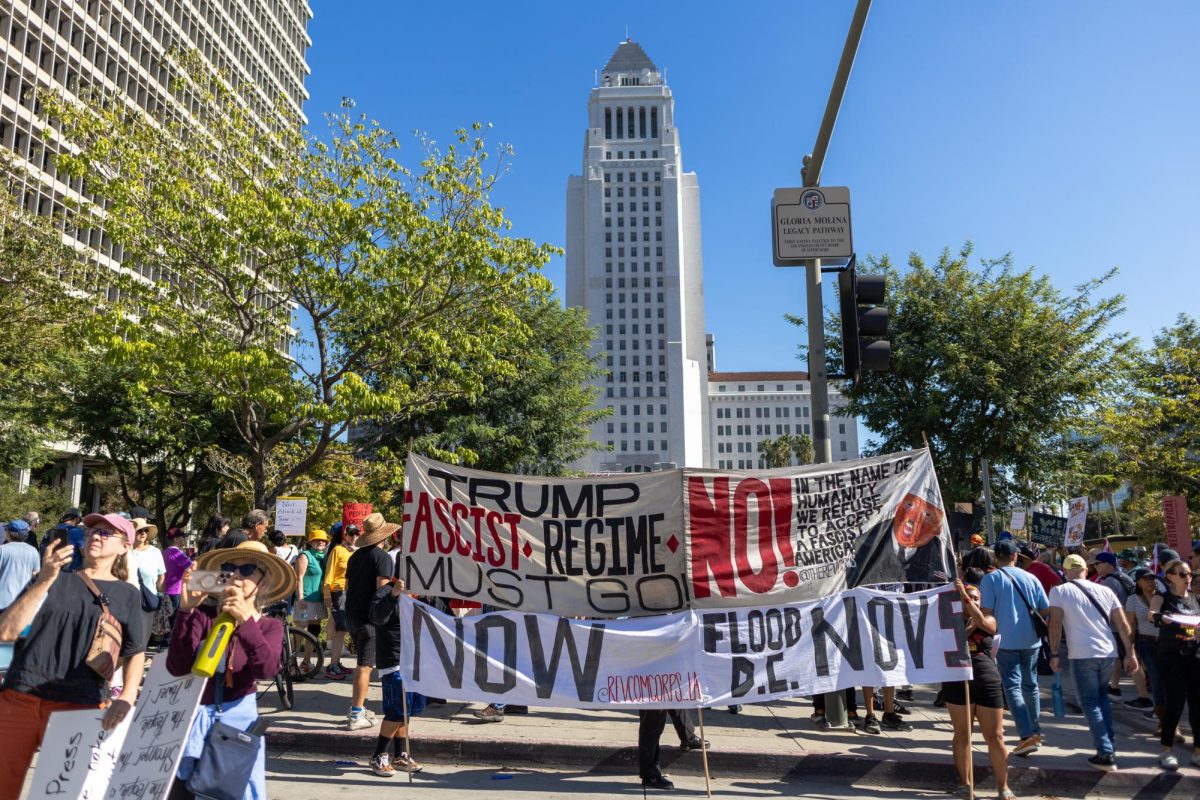Cramped among the bookshelves, seated in front of a counter at a store, framed by art in an art gallery space, gathered around a mural or sardined into a bar was all part of the journey in a visionary theatrical exhibit, blurring the lines between real life and story. The show, “Luminous Streets” captivated audiences into a more intimate and relatable experience with each performance.
Over the last two weekends of September, “Luminous Streets” led audiences on a mesmerizing journey through five separate vignettes that vividly told the stories of women’s empowerment and social justice in a time of societal upheaval and fracturing. The theatrical feat spanned through five local community havens on York Blvd. in Highland Park.
“It’s amazing to do immersive shows,” John Sweet, an actor in two of the shorts, said. “This kind of theater really is cutting edge compared to what a lot of people want to experience and be woken up from. Especially not traditionally sitting in a chair in a black room where you can kind of doze off and check out.”
This experience was produced and curated by The Roots and Wings Project, which for the last 20 years since its founding has rooted itself in the mission of being a women-led and women-focused production company.
The entire show and adventure was produced by The Roots and Wings Project Founder Jesse Bliss. She now teaches film at Woodrow Wilson High School, in El Sereno and plans to continue to write and produce plays for The Roots and Wings Project with one coming next year.
The Roots and Wings Project originated after Bliss wrote a play titled “Roots and Wings” based on her story and letters addressed to her as a prison system-impacted teenager, a play Bliss said she wrote in 12 hours.
“It was a gritty play about a woman claiming her past to understand her present and get clarity on the future,” Bliss said.
In addition to the Roots and Wings Project, Bliss has also been working with women in the California Institution for Women, in Chino with the “I LOVE MYSELF GOLDEN Writing Program” for the last seven years.
She sees prison as a microcosm of society, but with issues “exaggerated.” The project directly connects to these vignettes by directly addressing “matters that women go to prison behind,” including alcoholism, rape, domestic violence—something women disproportionately get incarcerated for, by protecting their children, Bliss said.
Bliss has done this before, pushing far beyond the confines of a single stage and taking the audience on a walking adventure through a community, or doing an entire play out of a car, as she did last year, in the traveling performance, “Joy Ride.” However, in the case of “Luminous Streets,” it travels to five separate local-community oriented businesses where each story was written in a way that it belongs in that space.
“Telling stories in a site-specific environment and inviting people to consider a different reality or another way we can be and exist in this world is very exciting to me, very inspirational,” Bliss said.
“Luminous Streets” was originally performed in Downtown LA in 2019 as one play, “A Record of Light,” at the Last Book Store, but moved to Highland Park in its return because “the environment is more harsh than it was, and I felt like there was too much liability and too much to contend with,” Bliss said.

Bliss chose Highland Park because she now calls it home, her daughter was born there and “it represents a beautiful value system where the shop owners are keeping elements of society alive that really need to keep going.”
Going into the planning and building up towards Luminous Streets in Highland Park, Bliss said that each of the writers who were brought on to write one of the vignettes, had a multitude of approaches and inspirations for their short stories. Some said that it was about healing past trauma, something on the backburner that they had wanted to write, or telling stories of moments in their own lives.
“This live embodiment of storytelling is actually ancient,” Bliss said. “And so I think it calls people’s souls awake and their most primitive and ancestral parts of themselves which we need right now.”
The show began at PopHop Books with a violin and singing piece, honoring the Native American lands we occupy by artist Alma Cielo, which enveloped the store in music and grounded the whole room before leading into the deeply impactful and rich storytelling of each individual vignette.
Following the music, the first play began quietly, almost as if the show hadn’t even started yet, and that was the case for each one. It was as if an ordinary day was playing out in front of you, until it wasn’t and a story unfolded that held the audience as it played out, giving a feeling of a window into other lives.
Act one also took place at PopHop Books and featured “Le Cuisine Creole,” written by Roger Q. Mason explored the challenges and the intersection of cooking, and culture. That starred actors Morgan Danielle Day and Ryan Nebreja.
Day returned as the guide for the evening, taking the audience through each individual play, sharing tidbits of history and doing fun trivia quizzes on local knowledge along the way, which kept the audience engaged and on their toes for each performance. Each time Day let the audience know when it was time to move on, often ringing a small bell as a signifier for when to clap and when each vignette had come to a close.
“These pieces are extremely timely and it’s like an anthology,” Day said of all the performances, and being the guide for the night. “Like these pieces aren’t related, yet they somehow are.”
Bliss added on by saying that these moments, especially right now, are vital to society.
“It’s healing. It’s medicine. To come together in community and experience stories that are relevant to the moment that we’re in today,” Bliss said. “To put down your phone, to engage in, you know, captivating experiences brought to light by these actors with an audience besides you to get to walk together and talk as you’re walking and really have that intimate connection with technology to the side is powerful.”
In the second performance, at a lively communal space and party supply store, Be Nice Have Fun, Melissa Lugo and Liv Jones stared in “Driving Straight” a short intimate story about a fractured friendship no longer meant to be, a borrowed car and late drunk night out.
Lugo said in a later interview that she wrote the piece pulling from her own experiences and originally had no idea she would be playing a part in that story, but reflected that it was the universe telling her it was “something I was going to be in.”
The third mini-play took place in MorYork, an eclectic and expansive art gallery hidden in an old warehouse that smelled of old paints and metal parts, the perfect setting for a vignette meant to take place in someone’s studio.
In this piece, titled “Women Ascending” written by Ligiah Villalobos and starring Rufino Romero and Blanca Melchor, featuring Romero as Jorge, a painter and Melchor as Luz, a model and mother just trying to get by. The play ended after Melchor escaped an abusive relationship, and built up the confidence to do so after breaking through and finding her way through conversations with Jorge. The realization that Melchor had escaped left Jorge with a sense of deep happiness, and a wider relief that her not showing up was both a literal and figurative death.
The fourth, while not indoors, still featured Los Angeles coffee hotspot Cafe De Leche, where the play titled “Banish Him” written by Tyree Marshall, took place outside with the backdrop of a brightly colored anti-capitalist and anti-ICE mural, a staple in the area following ICE crackdowns across Los Angeles. The short starred John Sweet, as Jamie and returning cast member Liv Jones, as Rain in a piece commentating on how men take up too much space. It ended with Jones taking control of Sweet as a demon figure and telling him to “be quiet.”
“I think bringing to light stories like this the way that we do with Luminous Streets and using humor to address really serious topics, and also the power of transcendence that the characters find,” Bliss said. “I think what it does is it advocates for our women that are being held in incarceration because it’s telling stories that haven’t been told and need to be told and it’s doing so in a way where we do experience the characters find their way and claim their power.”
Sweet later reflected on “Banish Him.” and the entire performance.
“I got to be an oppressor and an uplifter and an encouragement to women,” Sweet said.
In the finale, the largest of them all took place at “communal drinking hole” Johnny’s Bar, as Day pointed out with “Pure Cane Sugar.” The play was written by Bliss, and acted as the crescendo of the whole night, packed tightly into a loud and lively bar, and eventually outdoors onto the small patio where the night came to a close.
Like the other vignettes that night it empowered women, ensuring that despite hardship and sacrifice, main character Theodosia, played by Marlaina Owens, was able to follow her passion of singing and balancing everything that makes them whole.
“That story is about sticking close to what it is you love, whatever they may be and not giving up because I think in our time people are feeling so much anxiety and pressure and it’s becoming increasingly difficult for people to do what they love,” Bliss said about her story. “So I think it’s a universal message about, you know, sometimes you have to fight to stick close to what it is you love and not let go of it.”
The show closed with an opera which Bliss wrote in Italian, from Owens that ended the night much like it had begun, with a grandiose performance of song and music. But it involved a lot more audience interaction as each member of the crowd was given a candle to carry as a small memento of the evening.

